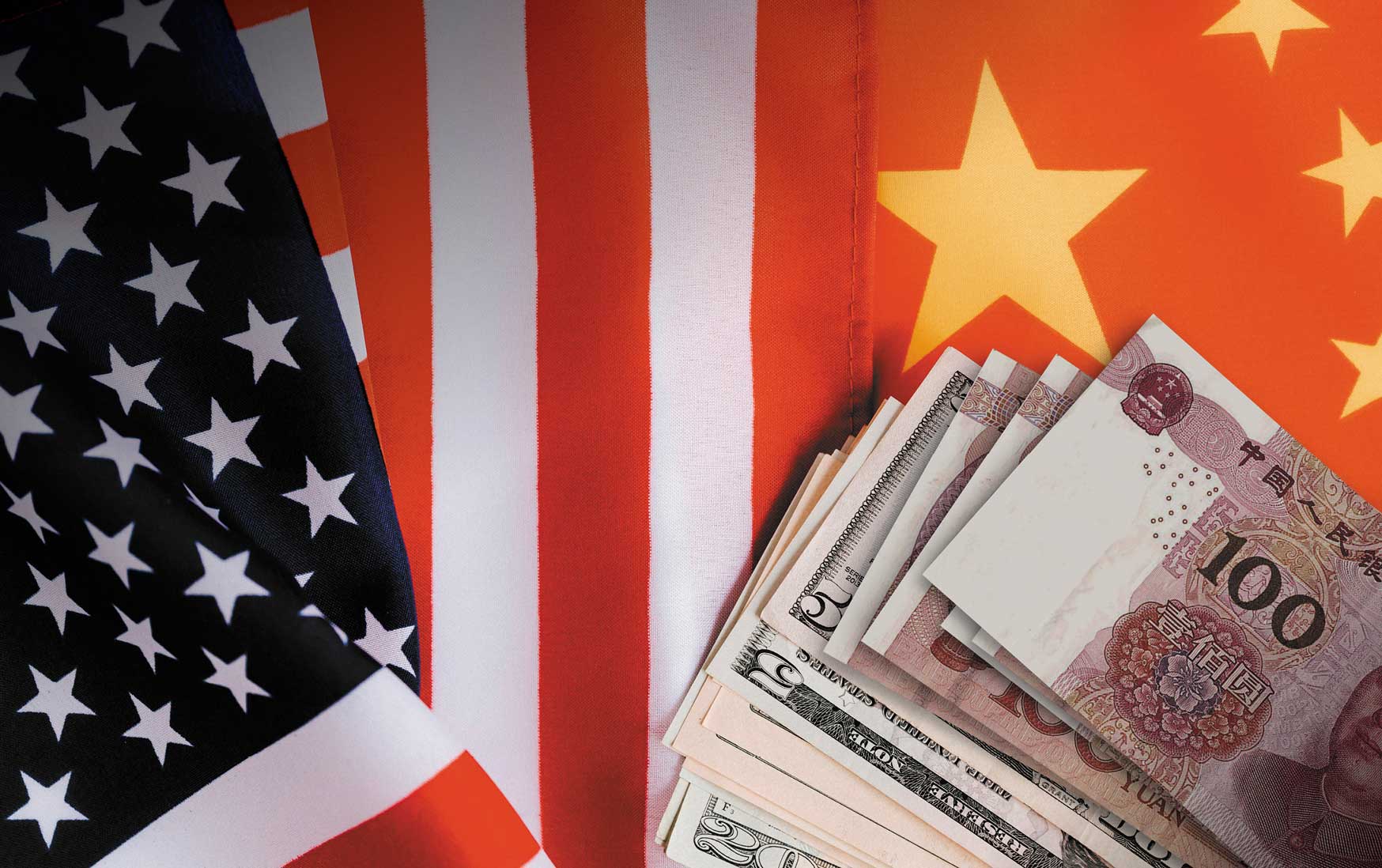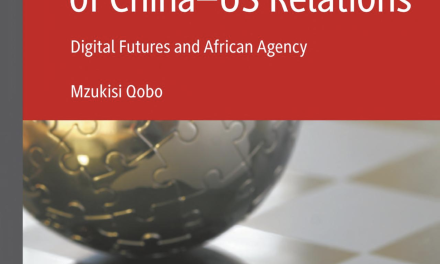The United States and China have engaged in intense geopolitical competition in Africa since the turn of the millennium, which has seen tons of ink spilt in the media on this matter, as well as on intellectual and academic platforms. But what is often not appreciated is the increasing sophistication of the battle between the two powers to win African hearts and minds.
One nascent and intricate phenomenon of this competition is a suite of strategies deployed by US and Chinese officials and tech company executives, leading to advertent or inadvertent clashes between them on the continent.
Scholars and intellectuals conceive the deployment of digital technologies for political-economic purposes as techno-politics and geotechnology. Thanks to their advancements in science and technology, the US and China are clear leaders in this blending of politics and technologies in the pursuit of their global ambitions. For instance, a study by economics and trade research company, Statista, shows that the US and China were consistently ranked first and second in global information and communication technology (ICT) from 2013 to 2021.
Statistics also show that China is the world’s leading manufacturer and exporter of mobile phones, while the US is recognised as the trailblazer in ICT innovations. The technological power that these two big powers have amassed translates into geopolitical power around the world, Africa included.
While debates and discussions around techno-politics and geotechnology tend to be broad and lumbering, it is in the sphere of diplomacy that we see these notions at play in more explicit terms. US and Chinese competition in Africa is indeed evident in a set of practices labelled as digital diplomacy, which describes a process in which state and non-state actors seek to influence foreign publics with an eye to achieving their goals, be they economic, political, or cultural.

Digital diplomacy is a relatively new terminology understood at the basic level as the use of digital technologies to promote the interests of one country in another country or region. It also includes the foreign policy strategies of countries to promote their digital economies. It is for this reason that the US and China’s use of their digital assets and capabilities can be comprehended as digital public diplomacy, cyber diplomacy, or diplomacy in the digital age, among other iterations. The question then is: how do Chinese and American digital diplomacy strategies in Africa compare?
A historical view can help us understand the digital technology-inspired changes at play today. In the not-too-distant past, the US and Chinese governments primarily plied their foreign influencing programmes through either state-owned or private media. On the US side, the Voice of America (VoA) was the main platform for broadcasting its values to Africa. For China, key platforms for communicating its interests in Africa were media platforms such as China Radio International (CRI) and China Central Television (CCTV). But two points are worth noting with new and emerging practices. First, these broadcasters are now deployed not just in their traditional, analogue formats, but via digital platforms such as YouTube and social media platforms – Twitter, Facebook, LinkedIn, Instagram, Flickr, TikTok, WhatsApp and WeChat.
Secondly, social media platforms now provide the Chinese and American governments, and private sector actors, with a direct route to reach African audiences. If you have “followed” the Twitter handle of the Chinese embassy in South Africa, then you have consumed Chinese digital diplomacy, which emphasises principles such as non-interference in the affairs of sovereign nations and a pursuit of “win-win” benefits. If you follow the LinkedIn page of the Bureau of African Affairs of the US State Department – the equivalent of America’s foreign ministry – then you will be attuned to US foreign policy towards Africa, which highlights democracy, human rights, and transparency.
From the perspective of social media use as a means of digital diplomacy, it appears that US platforms are more successful than the Chinese. A key factor underlying this is one of perception. Most of the social media platforms popular in Africa – particularly Facebook and Twitter – are American rather than Chinese. Chinese social networking sites such as Sina Weibo (the equivalent of Facebook), Tencent QQ, and many others simply do not register on Africa’s social media radar. There was an attempt in 2017 to introduce WeChat to rival its American counterpart, WhatsApp, but that effort did not gain much traction. The Chinese outlier is the music and video sharing network, TikTok, which has in recent times taken Africa’s youth by storm.

Africans’ use of US rather than Chinese social media means that they are consuming more American than Chinese culture, thanks to exposure to US content that is embedded in the platforms. On the other hand, not much Chinese content is reaching African netizens.
China, however, makes up for weaknesses in the communicative benefits of the social media sphere with what we may refer to as a policy framework-based digital diplomacy strategy. Through its Forum on Africa China Cooperation (FOCAC), China has elaborated and implemented many tangible digital development initiatives. During the 2021 FOCAC conference held in Dakar, Senegal, for instance, China committed to “undertake 10 digital economy assistance projects for Africa, support the development of African digital infrastructure, and continue to hold the China-Africa Digital Cooperation Forum and the China-Africa BDS Cooperation Forum”, among an array of other investments.
Chinese diplomatic approaches toward Africa are wrapped around the Digital Silk Road, which is part of Beijing’s ambitious geopolitical strategy, the Belt and Road Initiative (BRI). A major Digital Silk Road project is the Pakistan East Africa Cable Express (PEACE) initiative funded by the Export-Import Bank of China, aiming to link eastern and southern Africa’s internet infrastructures with Asia and parts of Europe. Although the US government has several ICT development programmes such as the US Trade and Development Agency’s (USTDA) “Access Africa” initiatives, they are not nearly as well resourced as the Chinese investments.
The corporate social responsibility and the philanthropic missions of Chinese tech companies are more closely aligned with their government’s diplomatic strategies and interests than is the case with linkages between American companies and official US diplomatic mechanisms. Chinese companies such as Huawei and China Mobile, for example, have stronger and direct support from their government and the Communist Party of China than their American counterparts.
Washington, on the other hand, struggles in its efforts to promote the business activities of its companies in Africa and ends up playing a comparatively lighter, facilitative role. By contrast, Beijing often deploys Chinese digital technology companies as avenues for digital diplomacy. A case in point is the coordination of Covid-19 donations to African countries by the e-commerce company Alibaba through the Jack Ma Foundation, in the early phases of the pandemic in 2020. These donations of medical equipment and supplies to many African countries were coordinated with Chinese embassies, the African Union, and the African Centres for Disease Control (CDC).
US government and diplomatic missions had a far lighter involvement in donations from American tech firms such as Microsoft and Apple to African countries. On the other hand, a good number of Chinese companies playing a digital diplomacy role in Africa are state-owned enterprises, in contrast to the American situation in which the government does not directly run any enterprises.
We can conclude that the differing approaches between China and the US in Africa’s digital diplomatic sphere are informed by, alternately, a socialist ideological persuasion in Beijing and a capitalist superstructure in Washington.
Dr Bob Wekesa is acting director and research and communications coordinator at the African Centre for the Study of the United States based at the University of the Witwatersrand, South Africa. He holds a Bachelor’s degree from the University of Nairobi and Master’s and doctoral degrees from the Communication University of China, Beijing. His area of teaching, research and public engagement is the intersection of journalism, media, and communications on the one hand and geopolitics, diplomacy and foreign policy on the other. He supervises post-graduate projects in these fields. His current research work includes international communication; diplomacy with a focus digital and public diplomacy; African diaspora; the internationalisation of African cities; the geopolitics of Africa and established and emerging powers. Prof Wekesa is well published in academic and popular platforms.












